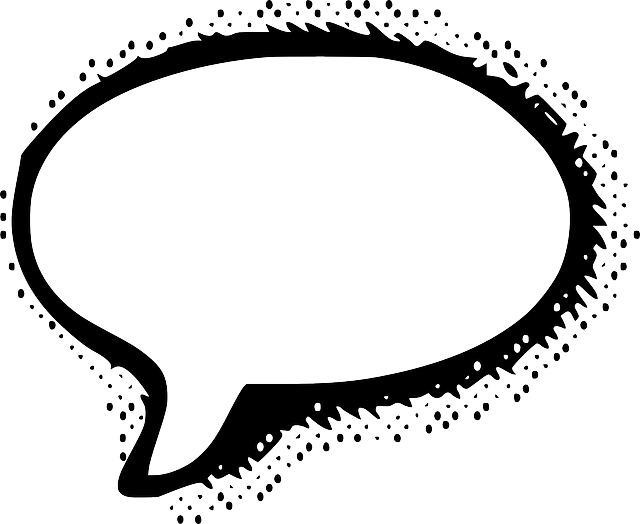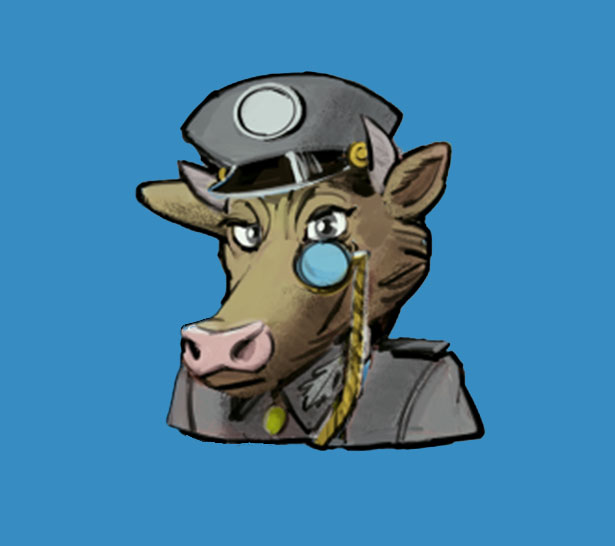Dialogue 1: The Basics
What is Dialogue?
The Oxford English dictionary defines dialogue as:Dialogue (/ˈdʌɪəlɒɡ/), noun: Conversation between two or more characters in a literary work; the words spoken by the actors in a play, film, etc. Also: the style or character of the spoken elements of a work.
Direct Dialogue
Direct dialogue records a conversation word for word. This is probably the form of dialogue most familiar to readers, and the one we use most in our writing. It can be an extremely useful tool for both character and plot development."Good morning."
"Hey," Clara said. "Sorry I'm so late. Traffic."
Indirect Dialogue
Sometimes called 'reported speech', indirect dialogue summarises a conversation in one or two sentences. This is useful for mundane or less important conversations that don't need to be quoted word for word.They exchanged greetings and Clara apologised for being late.
When deciding which type of dialogue to use, ask yourself the following questions: 1) Does the conversation further the plot? 2) Does the conversation reveal something about the characters involved? If the answer to either of these questions is 'yes', direct dialogue is usually the way to go. If the answer to both is 'no', ask yourself if a summary of the conversation would serve the same purpose. So-called 'small talk' is often best summarised, though of course there are exceptions.
Punctuation

"I don't understand what you're saying," Adam said, wringing his hands.
Roger didn't reply, continuing to pace the room.
"Please," Adam continued. "I need to know what happened."
"It's classified."
Commas, Full Stops, and Capitalisation
One of the things I see writers struggling the most with is whether to use a comma or a full stop (also known as a period) in dialogue. If the line of dialogue is the whole sentence, use a full stop (or a question mark or exclamation mark) at the end. Always place the punctuation inside the quotation marks."I don't love you."
"What are you doing?"
"I don't love you," said Anna.
"What are you doing?" he asked, trembling.
"I don't love you," said Anna. "It's over."
"What are you doing?" he asked, trembling. "Please."
"I don't love you." She turned away.
"What are you doing?" He squeezed his eyes shut.
Anna said, "I don't love you."
He squeezed his eyes shut. "What are you doing?"
"I don't love you," said Anna, her voice cold. She turned away. "It's over."
"What are you doing?" he asked, trembling. He squeezed his eyes shut as tears threatened to fall. "Please."
Addressing Others in Dialogue
If a character is directly addressing someone in dialogue, always place a comma before or after their name, depending on the sentence structure. If the name is in the middle of a sentence, this means you place a comma both before and after the name. It does not even have to be a proper name - an honorific or a pet name also count as names."I don't know what you're talking about, Greg."
"Just so you know, love, you're a real saint."
Interrupting Dialogue (And Complicating Things)
Characters aren't always polite enough to make formatting easy. Whether they are interrupting each other, themselves, or getting distracted mid-speech, sometimes the punctuation situation is slightly more complicated. If a character is interrupted by another character or by an outside force, you can cut of their dialogue with an em rule (or em dash) (—) to indicate an abrupt stop. Words can be broken off in the middle, but think carefully about the sounds and where it would make sense to interrupt. For example, you wouldn't cut off a word like 'church' off at the 'c', but at the 'ch'."I just wanted—"
"Shut up!"
"There's noth—"
A loud crash echoed through the house.
"I don't know..." The words stuck in his throat.
"But I thought..." Her voice trailed off.











Super useful already, thank you so much for making this for all of us :D
Creator of Araea, Megacorpolis, and many others.
I'm so glad to hear that! <3
Future ideas might be something like stuff to be careful with, like accents or difficult type of speeches. I remember reading some stories where it was pretty much impossible to figure out what anyone was saying :D
Creator of Araea, Megacorpolis, and many others.